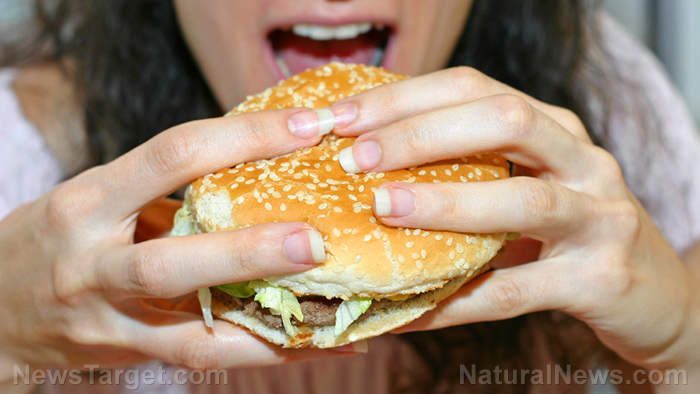
Advertisement
It turns out that there’s a scientific reason as to why you get uncontrollable food cravings late at night: sleep deprivation changes the way your brain processes signals related to food.
This is according to a two-part study that found that constantly staying up late can contribute to a breakdown in the body’s endocannabinoid system, a complex network that controls biological processes such as appetite, sleep and temperature regulation. This is further complicated by the fact that staying up late at night also forces the nose to become hypersensitive when it comes to food scents.
Put two and two together, the research team said, and one is essentially stuck between a rock and a hard place, with late nights essentially causing individuals to shift their food choices towards options filled with the likes of added sugar, sodium and unhealthy fats.
“When you’re sleep-deprived, these brain areas may not be getting enough information, and you’re overcompensating by choosing food with a richer energy signal,” senior author Thorsten Kahnt, assistant professor of neurology at Northwestern University Feinberg School of Medicine, said, adding that these food choices often end up being unhealthy fare such as junk and fast food.
Kahnt noted that their team arrived at this conclusion after conducting a two-part experiment in which they observed the food choices that people would make after being deprived of sleep.
“We found participants changed their food choices. After being sleep deprived, they ate food with higher energy density (more calories per gram) like doughnuts, chocolate chip cookies and potato chips,” Kahnt noted in a statement.
These cravings, the researchers found, had a neurological and chemical basis, with the possible proof being the elevated amounts of the endocannabinoid 2-oleoylglycerol in their blood.
The presence of this chemical, the researchers said, is directly related to cravings for high-energy — read: fatty, sweet — food.
In addition to the blood tests, the team also put their participants through functional magnetic resonance imaging (fMRI) scans to measure and map their brain activity.
During these scans, the research team exposed the participants to food scents and non-food scents, noting that the sleep-deprived participants reacted much more strongly to the scent of food compared to the other samples, not unlike that of a great white shark when it smells blood.
With that said, here are some things you can do to help curb your cravings:
Add more protein to your diet
Protein, as noted by experts, can keep you full for longer which means it can stave off unnecessary cravings.
If you’re feeling especially peckish, just blitz up a quick smoothie using organic nut butter, some organic cocoa, vegan milk and some pea protein to trick your brain into thinking that you’re getting a milkshake at a fast-food joint.
Eat organic fruits
If you really want to give in to hunger, do it with fruits.
This is because fruits are rich in natural sugars, which means it will still give your brain the sugar spike it’s craving. However, it also has fiber and other important nutrients, which serves to counteract the sugar you just ingested. Talk about hitting two birds with one stone.
Plan your meals in advance
If you really want to avoid the hassle of thinking about food on the spot, try to spend some time planning your meals for the upcoming week.
According to experts, this can be of great help because it eliminates any guesswork, which means you will be less likely to get tempted to get more food.
Add variety to your meals
One caveat to meal preparation is the fact that things can get boring, which then leads to unnecessary cravings. To avoid this and to keep things interesting, you can play around with spices to give your food that much-needed kick.
Not only will you be adding flavor to your food, but you’ll also be adding health-supporting phytonutrients to them. Amazing, right?
Try to minimize stress as much as you can
Stress, aside from sleeplessness, may induce food cravings and influence eating behaviors, making it even more difficult to achieve your healthy eating goals.
Aside from this, chronic stress can raise the levels of cortisol in your blood. Cortisol, as noted by experts, is a stress hormone that can make you gain weight, especially in the belly area.
Sleep deprivation does more than just make you drowsy — it can also make you more prone to unhealthy eating habits.
To ensure that your health is going to be at an optimal level and that you won’t be easily swayed by unhealthy cravings, make sure you get at least seven to eight hours of sleep each night.
Sources:
Advertisements







